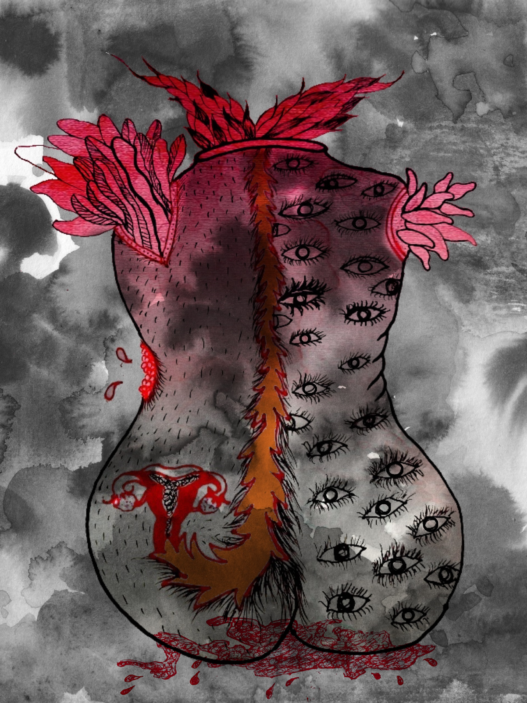Spousal rape, often referred to as marital rape, is a form of sexual violence where one partner forces or coerces the other into non-consensual sexual acts within a marital relationship. While much of the focus around spousal rape tends to center on the psychological and emotional trauma, the physical consequences can be just as devastating. One such injury, often overlooked, is the perineal tear.
What is a Perineal Tear?
A perineal tear refers to damage to the perineum—the region between the vagina and the anus—which typically occurs during childbirth. However, it can also be the result of forced penetration, as seen in cases of spousal rape. These tears range in severity from minor lacerations to severe ruptures affecting deeper tissues, including muscles and, in extreme cases, the anal sphincter.
Perineal tears are classified into four degrees:
- First-degree tears involve only the skin around the perineum.
- Second-degree tears extend into the muscles of the perineum but not the anal sphincter.
- Third-degree tears involve the anal sphincter muscle.
- Fourth-degree tears extend into the rectum and the anal mucosa, causing serious damage.
How Does Spousal Rape Cause Perineal Tears?
During consensual sex, the body’s natural response is to produce lubrication and relax the muscles, minimizing the risk of injury. However, during forced intercourse, the body is unprepared. Lack of lubrication and resistance from the muscles can lead to tearing, especially when penetration is violent, hurried, or forceful.
In the context of spousal rape, the dynamics of power, control, and violence exacerbate the risk of such physical injuries. Spousal rape victims are often subjected to repeated and prolonged sexual assaults, increasing the likelihood of perineal tears and other forms of genital trauma.
The Role of Vaginal Dryness
Vaginal dryness can exacerbate the likelihood of perineal tears during forced intercourse. Factors such as stress, trauma, menopause, or medical conditions (including asexuality or low libido-related issues) can lead to insufficient lubrication. In the context of spousal rape, this lack of lubrication can be particularly harmful.
In cases where a survivor of spousal rape may experience repeated episodes of non-consensual intercourse, the body’s protective mechanisms are diminished. The absence of lubrication combined with forced penetration can lead to severe internal injuries, including perineal tears. This is not merely a physical injury but also a constant reminder of the trauma and violation endured.
“Life isn’t about waiting for the storm to pass; it’s about learning to dance in the rain and finding joy in the midst of life’s challenges.”
Vivian Greene
Life-Threatening Consequences of Untreated Perineal Tears
In cases of spousal rape, a life-threatening perineal tear can occur, where the victim suffers severe trauma to the genital area. However, due to societal stigma, fear of exposure, or lack of resources, many individuals do not seek proper medical care. Instead, they may turn to unqualified, ‘Village Doctors’ who use non-medical methods, often worsening the condition. Without proper medical attention, the victim risks severe infection, uncontrollable bleeding, and long-term damage, as basic needs like stopping the bleeding are neglected. This neglect, combined with attempts to hide the injury, places the individual’s life in grave danger.
The Hidden Physical Consequences
Perineal tears are not just painful; they can have long-term physical consequences. Victims may experience:
- Severe Pain: Even minor tears can cause excruciating pain during and after the assault. The healing process is often slow, and the pain can persist for weeks or even months.
- Infection Risk: Open wounds, especially in the genital area, are prone to infection. The risk increases when victims do not seek immediate medical help, either out of fear, shame, or lack of access to healthcare.
- Pelvic Floor Dysfunction: Repeated trauma to the perineal area can weaken the pelvic floor muscles, leading to issues such as incontinence, pain during urination, or defecation, and long-term difficulties in sexual function.
- Long-Term Sexual Dysfunction: Many survivors of spousal rape develop conditions like vaginismus, where the muscles around the vagina involuntarily tighten, making future sexual activity painful or impossible.
- Complications in Future Pregnancies: If left untreated, severe perineal tears can complicate future pregnancies and childbirth, making them more painful and dangerous.
The Psychological Impact
While the physical damage caused by a perineal tear can be repaired surgically, the emotional and psychological scars left behind by spousal rape often require more extensive, long-term care. Survivors frequently suffer from post-traumatic stress disorder (PTSD), depression, anxiety, and a host of other mental health issues. The physical trauma serves as a constant reminder of the assault, further entrenching the emotional pain.
Survivors may also face a lack of support from society, their families, or the legal system. In many parts of the world, marital rape is still not recognized as a crime, leaving survivors without recourse for justice or healing. This combination of physical, emotional, and legal challenges often leaves victims isolated, stigmatized, and without proper care.
Breaking the Silence
Addressing the issue of perineal tears and other injuries caused by spousal rape requires more than just medical intervention—it demands a comprehensive approach that includes legal reform, public awareness, and improved support systems for survivors.
- Legal Recognition: One of the first steps toward addressing spousal rape is ensuring it is recognized as a crime in every jurisdiction. In many countries, outdated legal frameworks fail to recognize that non-consensual sex within marriage is rape, perpetuating the cycle of violence.
- Healthcare Response: Medical professionals need to be trained to recognize the signs of spousal rape, including perineal tears and other physical injuries, even when survivors are reluctant to disclose their abuse. Healthcare providers must also offer a safe, non-judgmental space for survivors to seek help.
- Support Systems: Survivors of spousal rape need comprehensive support that includes medical care, mental health services, and legal advocacy. Shelters and support groups must be made accessible, especially in regions where women may face barriers to seeking help due to cultural or social norms.
Addressing the Aftermath
While addressing the immediate medical concerns following a perineal tear is critical, it is equally important to acknowledge the emotional and psychological support survivors need. Healing from spousal rape and its physical aftermath requires a holistic approach that includes medical care, psychological counseling, and social support.
Unfortunately, in many societies, spousal rape is either not recognized as a crime or is surrounded by stigma and shame, leaving survivors feeling isolated and without recourse. Advocacy for legal reforms and supportive frameworks is essential to ensure that survivors of spousal rape, particularly those who suffer physical injuries like perineal tears, can access justice and healing.
Conclusion
Perineal tears in the context of spousal rape are an often-overlooked aspect of the broader discussion on sexual violence. These injuries are not only physically painful but also serve as a constant reminder of the violation that survivors endure. Recognizing the severe physical and psychological toll of such injuries is essential in advocating for the rights of survivors and providing them with the necessary medical and emotional support.
Survivors of spousal rape deserve to have their trauma addressed comprehensively, including the physical aftermath of injuries like perineal tears. By fostering understanding and offering support, society can begin to dismantle the systems that enable spousal rape and contribute to the healing of survivors.
HASH TAGS
#Asexual|_Health
#Health
#Sex_&_Sexuality
#Menstrual_Health
#Mental_Health
#Reproductive_&_Maternal Health
#IntersectionalityTop of Form
















This post is a game-changer. I\’ve learned so much from it – thank you!
I\’m glad you enjoyed it! Your kind words inspire me to keep creating informative content.
I\’m so glad I found your site. Your posts are consistently excellent.
I love how your posts are always so well-structured and easy to follow.
Your post is a true masterpiece. I\’ll be referencing it in my own work.